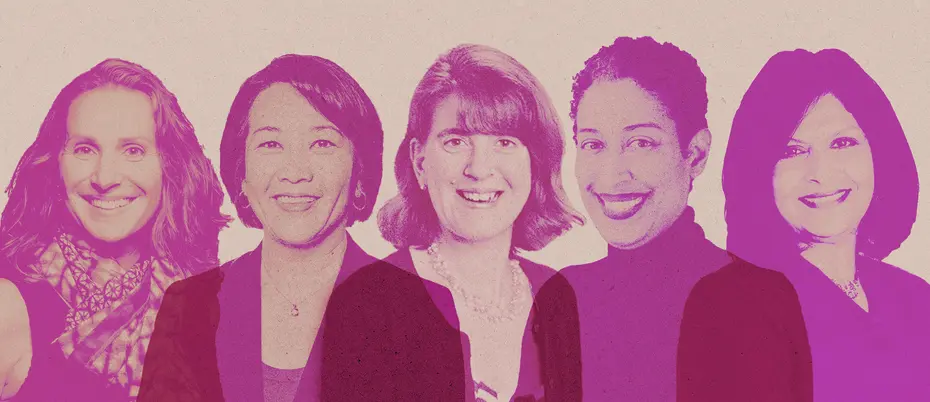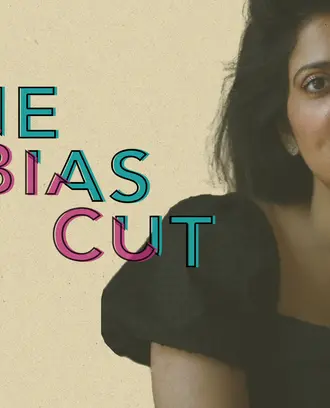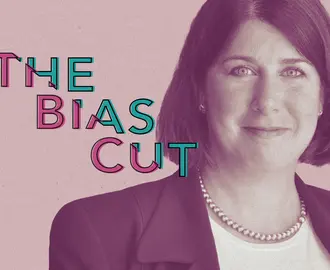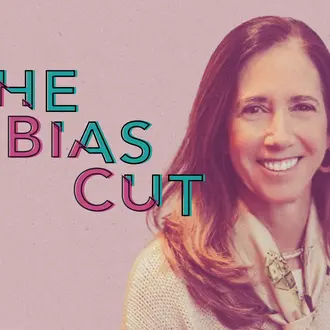The Bias Cut
From startup to C-suite, how female leaders fight gender bias
“We need a place to talk openly and honestly about what it really takes to excel in our jobs. We need a place to celebrate our wins and a place to lift us up when we stumble.”
In June 2020 Ideas Made to Matter launched The Bias Cut, a women’s leadership series profiling the career paths and creative problem-solving of MIT Sloan alumnae. What we learned from these women is that no matter the industry or professional milestone, all of them faced some type of gender bias, harassment, and opposition to their management styles.
But we also learned that none of them were afraid to directly address those challenges and to use what they learned to help their female colleagues and the women behind them.
Here’s a closer look at those career takeaways.
Meet your problems head on, no matter who or what they are
Now a division director at Carnegie Mellon University, Anita Carleton once worked at an organization where a male colleague would only address the other men in meetings.
His behavior not only affected her morale, said Carleton, MBA ’18, but also the morale of the other women in the meetings.
“As the senior leader in the room, I had to confront the issue head on. I had to point out these behaviors and ask him to please be more aware and conscious of his unintended behaviors,” she said. “And I noticed that I had to address this same issue several times with this colleague. Eventually, his behavior changed. He explained that he did not realize that he was responding in meetings in this manner.”
A boss once told KPMG principal Julia Abramovich, MBA ’02, that he didn’t put her name in for a particular job opportunity because she’d just be coming back from maternity leave and he assumed she wouldn’t want to travel and be away from her family.
“I knew he meant well, so I explained that it should be my choice and that in fact I did want the opportunity and was willing to travel,” Abramovich said. “He said ‘OK’ and I got the gig. Had I not spoken up, I’d probably still be steaming about that lost opportunity.”
The toughest lessons can have the most to teach you
When Jill Solely started in her career, she thought keeping her head down and doing good work would be all that was needed to get the attention of management — and with it, the possibility for a promotion. But she learned that wasn’t enough.
“You also are your own chief marketing officer,” said Solely, SB ’92, MBA ’02, vice president of product and design at digital publishing platform Issuu. “That means you need to be clear about the value you bring to the market and make sure others know what value you provide. That means speaking up in meetings, taking credit for your work, and raising your hand for growth opportunities.”
Hannah Clark Steiman thought she knew better than her coworkers when she started at a new company, and she didn’t hold back with her criticism of its operations.
“I came across as an asshole,” said Steiman, MBA ’13, now the chief operating officer at virtual call center Peak Support.
She realized her mistake and started listening to people instead of trying to tell them how to do their jobs. But the damage was done. Even two years later at the company, despite a new management approach, she couldn’t shake the reputation she’d created.
Julie Wada had a similar experience when she was promoted to a role as vice president of human resources.
After an employee survey, Wada’s boss shared what turned out to be negative feedback from people who used to enjoy working for her.
“He helped me see that I had been trying to do certain things that I thought I should do because of my predecessor’s approach,” said Wada, SM ’90, group vice president, corporate strategy and innovation at Toyota Financial Services. “It’s true I had a lot to learn in this new area, but I also had to recognize that I had unique strengths to complement the team’s strengths.”
If you can’t find the support you need, create your own
For two years, Angelique Adams interviewed career women from around the world for a book she was writing. Among the stories of overcoming adversity and achieving success was the common thread of a need for community.
“We need a place to talk openly and honestly about what it really takes to excel in our jobs,” said Adams, Executive MBA ’18, chief innovation and R&D officer at steel producer Aperam. “We need a place to celebrate our wins and a place to lift us up when we stumble. Unfortunately, we can’t get that at work. So I created the community myself.”
In 2020 she started a LinkedIn community called The Lady Visitor Project.
But you don’t have to write a book to affect change.
Lauren Hoops-Schmieg, EMBA ’18, executive director of Hill House, worked with her nonprofit’s board to improve the work-life balance for staff.
There’s an open leave policy that allows for more flexible paid time off arrangements, as well as more flexible work-from-home options for the mothers on staff.
“We’ve extended six-week paid paternity leave and some of those flexible work-from-home opportunities for the fathers at our organization,” Hoops-Schmieg said. “We want fathers to be able to support their wives in their careers and also to understand, firsthand, the balance that is necessary for raising a family. And maybe, when they have more influence and power, they can make policies that make it easier for staff raising families.”




